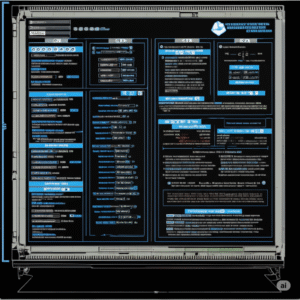The relentless march of technology continues to reshape our professional and personal landscapes. In this rapidly evolving digital era, the concept of an AI personal assistant has transcended science fiction to become a tangible, indispensable tool. No longer a futuristic fantasy, these intelligent systems are revolutionizing how we manage our daily tasks, particularly those tedious administrative burdens that consume countless hours. Imagine a world where your calendar is flawlessly organized, emails are intelligently triaged, and reports are generated with uncanny accuracy – all without lifting a finger. This is the promise of the AI personal assistant, a powerful ally in the pursuit of enhanced productivity and seamless operations.
The administrative overhead in any profession, from a bustling corporate office to a dynamic startup in Rishikesh, can be immense. Scheduling meetings, managing endless email threads, data entry, report generation, and content creation are just a few examples of tasks that, while essential, often detract from core responsibilities and strategic initiatives. This is where the power of an AI personal assistant truly shines. By automating these repetitive, time-consuming processes, AI liberates human potential, allowing individuals and businesses to focus on innovation, creativity, and high-value work. This blog post delves deep into the transformative capabilities of AI personal assistants, exploring their diverse applications, real-world impact, and practical tips for integrating them into your workflow.
The Dawn of a New Productivity Era: What is an AI Personal Assistant?
An AI personal assistant is essentially a software application powered by artificial intelligence, designed to assist users with a wide range of tasks, particularly those involving information processing, scheduling, communication, and data management. Unlike traditional digital assistants, AI-powered versions leverage machine learning (ML) and natural language processing (NLP) to understand context, learn from interactions, and perform tasks with increasing autonomy and intelligence. Think beyond simple voice commands; these assistants can analyze vast datasets, predict needs, and even generate human-like text or code.
The evolution of AI has led to sophisticated AI administrative tools that are becoming integral to modern businesses. These tools are designed not just to automate, but to optimize, offering insights and efficiencies that manual processes simply cannot achieve. From small businesses seeking to maximize lean teams to large enterprises aiming for streamlined operations, the adoption of AI personal assistants is no longer a luxury but a strategic imperative. The benefits extend far beyond simply “saving time” – they encompass enhanced accuracy, improved decision-making, and a significant boost to overall productivity.
Detailed Use Cases and Real-World Scenarios
The versatility of an AI personal assistant allows it to adapt to myriad professional contexts, delivering tangible time savings across various industries. Let’s explore some detailed use cases:
1. Executive and Administrative Support: Reclaiming the Calendar
For executives and administrative professionals, managing schedules, emails, and travel arrangements can be a full-time job in itself. An AI personal assistant can revolutionize this.
- Smart Scheduling: AI can analyze multiple calendars, identify optimal meeting times, send invitations, and even handle rescheduling conflicts automatically. Tools like Calendly with AI integrations or advanced features within Google Calendar can suggest slots based on attendee availability, time zones, and even meeting preferences. This is invaluable for busy professionals constantly juggling appointments.
- Email Management: Beyond simple filtering, an AI personal assistant can prioritize emails, draft responses based on context, summarize long threads, and even flag urgent communications. For example, a sales professional might use an AI to draft personalized follow-up emails after client meetings, ensuring no lead is missed.
- Travel Planning: From booking flights and hotels to creating detailed itineraries, an AI can manage all aspects of business travel, including real-time updates on delays or cancellations, often by integrating with travel management platforms.
2. Marketing and Sales: Supercharging Outreach and Content
In the fast-paced world of marketing and sales, efficiency is king. AI personal assistant technologies are transforming how teams engage with prospects and create compelling content.
- Lead Qualification & Nurturing: AI can analyze inbound leads, score them based on predefined criteria (e.g., industry, company size, engagement history), and even initiate personalized follow-up sequences. This allows sales teams to focus on high-potential leads. Tools like HubSpot’s AI-powered CRM leverage AI to automate lead scoring and personalize outreach.
- Content Generation & Optimization: From drafting social media posts and blog outlines to generating email subject lines and ad copy, an AI personal assistant can significantly accelerate content creation. It can also analyze content performance and suggest optimizations for better engagement and SEO. Consider AI writing assistants like Jasper AI or Copy.ai for generating various marketing collateral.
- Data Analysis and Reporting: AI can sift through vast amounts of sales and marketing data, identifying trends, forecasting future performance, and generating comprehensive reports, saving hours of manual compilation.
3. Healthcare: Streamlining Administrative Workloads
The healthcare sector, burdened by extensive administrative tasks, stands to benefit immensely from AI personal assistant integration.
- Appointment Management: AI can manage patient appointments, send automated reminders, and handle rescheduling, reducing no-shows and optimizing clinic schedules.
- Medical Transcription and Documentation: AI-powered tools can accurately transcribe doctor-patient conversations, populate electronic health records (EHRs), and even summarize patient histories, freeing up medical professionals to focus on patient care. This is particularly relevant in India, where diverse accents can make manual transcription challenging.
- Billing and Insurance Processing: Automating claims processing, verifying insurance details, and flagging discrepancies can significantly reduce administrative errors and accelerate revenue cycles.
4. Legal Industry: Accelerating Research and Document Review
The legal profession, known for its extensive document review and research, is finding powerful allies in AI administrative tools.
- Legal Research: An AI personal assistant can rapidly search through vast legal databases, identify relevant case precedents, statutes, and regulations, significantly reducing research time. LawSimpl, an AI legal assistant built for Indian law, exemplifies this by offering drafting, review, and research with India’s largest legal knowledge-base.
- Document Review & Contract Analysis: AI can quickly analyze large volumes of legal documents, identify key clauses, flag anomalies, and even compare contracts against best practices, expediting due diligence processes. This reduces human error and accelerates legal proceedings.
- Client Intake and Communication: AI chatbots can handle initial client inquiries, gather essential information, and direct clients to the appropriate legal professional, improving efficiency and client satisfaction.
5. Real Estate: Enhancing Client Experience and Operations
In the competitive real estate market, AI personal assistant solutions are providing a distinct advantage.
- Property Matching and Lead Nurturing: AI can match prospective buyers with properties based on their preferences, budget, and lifestyle, and then automate follow-ups and reminders. PropAI, an AI solution for real estate in India, automates property matching, lead follow-ups, and scheduling.
- Virtual Showings and Enquiries: AI-powered virtual assistants can answer common property-related questions 24/7, schedule viewings, and even provide guided virtual tours, enhancing the client experience and reducing agent workload.
- Market Analysis: AI can analyze market trends, predict property values, and identify emerging opportunities, providing real estate professionals with data-driven insights for better decision-making.
Case Studies: AI in Action
To illustrate the tangible impact, let’s look at a couple of hypothetical yet realistic case studies:
Case Study 1: “Seamless Solutions” – A Thriving Digital Marketing Agency in Bengaluru
Challenge: “Seamless Solutions,” a mid-sized digital marketing agency, struggled with administrative overload. Their marketing managers spent an average of 10 hours a week on scheduling client meetings, drafting routine email updates, and compiling performance reports. This detracted from their core creative and strategic tasks.
Solution: The agency implemented an integrated AI personal assistant solution. They adopted an AI-powered scheduling tool that synced with client calendars and automatically proposed meeting times, sending out invites and reminders. For email management, they deployed an AI assistant that triaged incoming client queries, drafted initial responses for common questions, and summarized lengthy client feedback threads, flagging critical issues for immediate human attention. They also integrated an AI reporting tool that pulled data from various advertising platforms and automatically generated weekly performance reports for clients.
Outcome: Within three months, “Seamless Solutions” observed a 30% reduction in time spent on administrative tasks for their marketing managers. This freed up their team to focus on strategic campaign planning, creative content development, and client relationship building, leading to a 15% increase in client satisfaction scores and a noticeable improvement in campaign performance. The AI administrative tools became an indispensable part of their daily workflow, demonstrating the power of smart automation.
Case Study 2: Dr. Priya Sharma’s Clinic, Rishikesh
Challenge: Dr. Priya Sharma, a busy general practitioner in Rishikesh, faced increasing administrative burdens. Her receptionist spent significant time managing appointments, sending manual reminders, and answering repetitive patient queries over the phone. This often led to long wait times and occasional scheduling conflicts.
Solution: Dr. Sharma implemented an AI personal assistant specifically designed for clinic management. This AI assistant handled automated appointment booking through a patient portal, sending out SMS and WhatsApp reminders for upcoming consultations. It also incorporated a basic chatbot feature on the clinic’s website that could answer common questions about clinic timings, services offered, and even provide preliminary symptom-based advice, directing patients to book appointments if needed.
Outcome: The clinic witnessed a remarkable 40% reduction in phone calls related to routine inquiries and appointment management. Patient no-show rates decreased by 20% due to timely, automated reminders. Dr. Sharma’s receptionist could now dedicate more time to directly assisting patients, managing critical medical records, and improving the overall patient experience. This allowed Dr. Sharma to see more patients and provide higher quality care, demonstrating how AI can directly impact essential services in local contexts.
Tool Suggestions, Practical Tips, and Beginner-Friendly Workflows
Integrating an AI personal assistant into your workflow doesn’t require a complete overhaul. Here are some beginner-friendly suggestions and practical tips:
Tool Suggestions:
- For Scheduling and Calendar Management:
- Calendly (with AI integrations): While primarily a scheduling tool, its integrations with various AI platforms allow for smarter scheduling suggestions and automated follow-ups.
- Google Workspace (with AI features): Google Calendar and Gmail increasingly offer AI-powered suggestions for scheduling and email drafting.
- For Content Creation & Communication:
- ChatGPT / Gemini: Excellent for drafting emails, summarizing documents, brainstorming ideas, and even writing first drafts of articles.
- Grammarly (Premium): Beyond grammar checks, it offers advanced writing suggestions and tone adjustments, enhancing your written communication.
- HubSpot Content Hub: For marketers, this offers AI-powered content creation tools, from blog post generation to social media copy.
- For Automation & Workflow Orchestration:
- Zapier: This no-code automation platform can connect your various apps and create workflows, often leveraging AI tools. For example, a Zapier automation could trigger an AI to summarize a new email and then create a task in your project management tool. Check out Zapier’s blog for numerous AI automation examples: https://zapier.com/blog/ai-automation/
- Make (formerly Integromat): Similar to Zapier, Make offers powerful visual automation builders for complex AI workflows.
- For Industry-Specific Needs:
- LawSimpl: As mentioned, a dedicated AI legal assistant for Indian law. https://lawsimpl.ai/
- PropAI (Markytics): An AI-powered solution for real estate sales. https://www.markytics.com/prop-ai
- Leena AI: An AI platform for IT, HR, and Finance tickets, showing broad administrative applications. https://leena.ai/
Practical Tips:
- Start Small: Don’t try to automate everything at once. Identify one or two highly repetitive tasks that consume significant time and begin there.
- Define Clear Objectives: Before adopting an AI tool, understand what problem you’re trying to solve. Is it to save time, improve accuracy, or enhance customer satisfaction?
- Data Quality is Key: AI thrives on data. Ensure the data you feed your AI personal assistant is clean, accurate, and relevant for optimal performance.
- Regular Review and Refinement: AI models improve with feedback. Regularly review the AI’s output and provide corrections or adjustments to enhance its accuracy and effectiveness.
- Human Oversight Remains Crucial: While AI automates, human oversight is essential, especially in critical tasks. AI is a powerful assistant, not a replacement for human judgment and creativity.
Beginner-Friendly Workflows:
- Email Summarization: Connect your email client to an AI summarizing tool. When a long email arrives, the AI automatically provides a concise summary, saving you reading time.
- Meeting Note Extraction: Use an AI transcription service for your meetings. Then, an AI personal assistant can extract key action items and decisions, automatically populating your project management tool.
- Content Idea Generation: Input a topic into an AI writing assistant, and let it generate a list of blog post ideas, social media captions, or email headlines. You can then refine these with your unique human touch.
The Future is Automated: The Evolving Role of AI Personal Assistants
As AI technology continues to advance, the capabilities of an AI personal assistant will only expand. We can anticipate more sophisticated natural language understanding, enhanced predictive analytics, and seamless integration across an even wider array of platforms and devices. The future of work will undoubtedly involve a symbiotic relationship between human professionals and intelligent AI systems.
The focus will shift from doing administrative tasks to managing and optimizing the AI personal assistants that perform these tasks. This will allow individuals to dedicate more energy to strategic thinking, complex problem-solving, and building meaningful relationships – aspects of work that inherently require human ingenuity and emotional intelligence. In India, with its growing digital workforce and increasing adoption of technology, the impact of AI administrative tools is set to be profoundly transformative, fostering a new era of productivity and efficiency.
Conclusion: Embracing the AI Revolution for Administrative Excellence
The era of the AI personal assistant is not just about technology; it’s about redefining efficiency, productivity, and human potential. By intelligently automating the administrative burdens that often stifle innovation and drain valuable time, these powerful tools empower individuals and organizations to achieve more. From revolutionizing scheduling and communication to transforming content creation and data analysis, the impact of AI is undeniable across industries.
As we navigate this exciting new landscape, embracing AI administrative tools is no longer an option but a strategic imperative. By starting small, focusing on clear objectives, and maintaining human oversight, anyone can harness the power of an AI personal assistant to streamline their operations, free up valuable time, and ultimately, elevate their professional output. The journey to administrative excellence, powered by artificial intelligence, is here, and it’s set to transform the way we work, one automated task at a time.
AI personal assistant, AI administrative tools, AI automation, productivity tools, time-saving AI, automated scheduling, email management AI, AI for content creation, AI in healthcare, AI in legal industry, AI in real estate, small business AI, AI tools for businesses, administrative burden reduction, workflow optimization, artificial intelligence personal assistant, AI for administrative tasks, digital assistant, smart office, AI for efficiency, India AI, AI trends 2025, AI for professionals, administrative automation.
AI for SEO: 5 Tools That Actually Work



